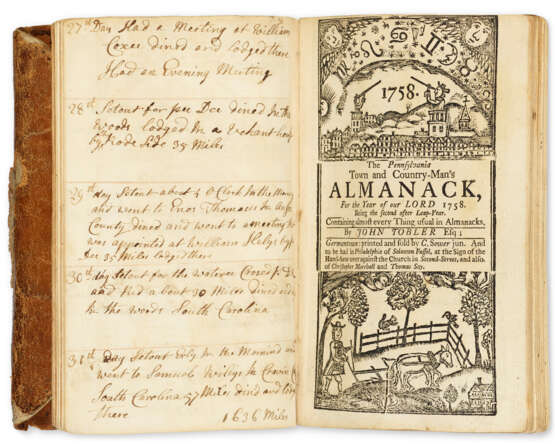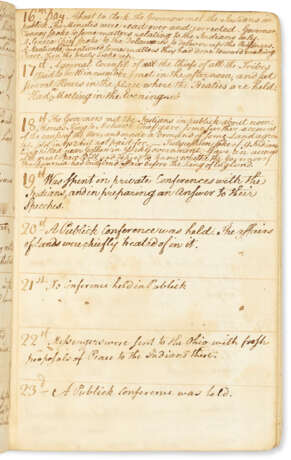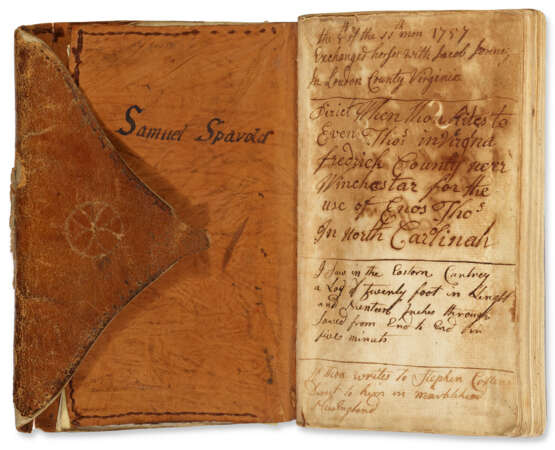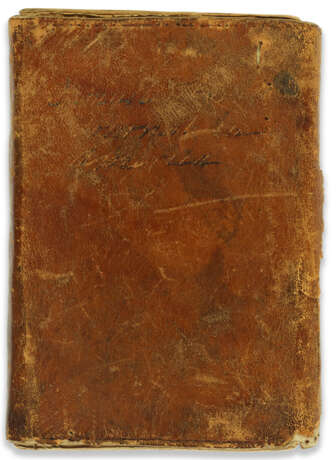ID 887919
Lot 141 | An eyewitness to the Treaty of Easton
Estimate value
$ 8 000 – 12 000
60 leaves, 21 printed, 49 in manuscript, 160 x 100mm (occasional toning). Contemporary soft leather wraps with interior pocket inscribed with ownership signature (wear to extremities).
The proceedings of the Treaty of Easton, as recorded by a Quaker missionary. A fascinating diary, kept by Samuel Spavold, an English-born member of the Society of Friends who experienced a religious revival in the late 1740s and came to America as part of a wave of missionaries who came to preach among fellow Quakers against the keeping of enslaved persons. Spavold keeps a meticulous record of his extensive travels along the eastern seaboard. Arriving in September 1757 in Philadelphia, Spavold rarely remained in the same locality for more than a single day, travelling as far south as Charleston, South Carolina, as far west as the Shenandoah Valley and as far north as Maine. On each page, Spavold tallied the miles travelled, which by the end of his journal exceeded 6,000 miles. Each day he recorded where he travelled and with whom he visited but often left no other details of his activities. Of particular interest is Spavold's visit to Easton during the treaty negotiations between the colonial governments of Pennsylvania and New Jersey with representatives of thirteen first nations including the Iroquois, Lenape and Shawnee. According to his journal, Spavold was present from 8 to 24 October when the treaty was concluded. While his notes under those dates are generally sparse, Spavold offers a far more detailed account of the proceedings, covering ten additional pages. Provenance: Samuel Spavold (ownership signature on interior pocket).
| Place of origin: | USA |
|---|---|
| Auction house category: | Letters, documents and manuscripts |
| Place of origin: | USA |
|---|---|
| Auction house category: | Letters, documents and manuscripts |
| Address of auction |
CHRISTIE'S 8 King Street, St. James's SW1Y 6QT London United Kingdom | |
|---|---|---|
| Preview |
| |
| Phone | +44 (0)20 7839 9060 | |
| Buyer Premium | see on Website | |
| Conditions of purchase | Conditions of purchase |






